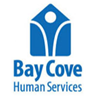The BTU Specialist will provide support to the students with disabilities enrolled in the ABA Strand and other students placed at risk within the school(s).
The support services that the Specialist will provide will be determined by the needs of the students and the specifications developed collaboratively by the Principal(s) / Head of School(s) and Office of Special Education (OSE).
Reports to : Principal(s) / Head of School(s) or OSE Program Director (in certain schools) with support from OSE
Responsibilities
- Provide specific support services, appropriate for the students enrolled in this strand and other students placed at risk, defined collaboratively by the Principal / Head of School and OSE
- Provide support services to individual students, small groups, and class groups, as defined in IEPs or Service Team Action Plans
- Collaborate in planning and service delivery with Principal(s) / Head of School(s), HSS Teachers, Special Education Coordinators, Special Education Program Directors, and other school staff and administrators
- Provide case management and liaison with other schools, district, and community-based providers
- Participate as members of Service Teams and Evaluation Teams
- Provide consultation and professional development to colleagues
Core Competencies : Using the Rubric of Specialized Support Instructional Personnel (SSIP), the Office of Human Capital has identified priority skills and abilities that all BPS SSIP should demonstrate.
Accountability for Student Achievement
II-A-1 Quality of Effort and Work, II-D-2 High Expectations, I B-2 Adjustments to Practice)
Sets ambitious learning goals for all students, uses instructional and clinical practices that reflect high expectations for students and student work;
engages all students in learning.
- Consistently defines high expectations for student learning goals and behavior.
- Assesses student learning regularly using a variety of assessments to measure growth, and understanding.
- Effectively analyzes data from assessments, draws conclusions, and shares them appropriately.
- Communicating Professional Knowledge
I-A-1 Professional Knowledge, I-A-2 Child Adolescent Development, I-A-3 Plan Development)
- Exhibits strong knowledge of child development and how students learn and behave, and designs effective and rigorous plans for support with measurable outcomes.
- Demonstrates knowledge of students’ developmental levels by providing differentiated learning experiences and support that enable all students to progress toward intended outcomes.
- Equitable & Effective Instruction
II-A-3 Meeting Diverse Needs, II-A-2. Student Engagement, II-B-1. Safe Learning Environment, II-B-2 Collaborative Learning Environment, I-D-3 Access to Knowledge)
- Builds a productive learning environment where every student participates and is valued as part of the class community.
- Uses instructional and clinical practices that are likely to challenge, motivate and engage all students and facilitate active participation.
- Consistently adapts instruction, services, plans and assessments to make curriculum / supports accessible to all students.
- Cultural Proficiency
II-C-1. Respects Differences, II-C-2. Maintains Respectful Environment)
- Actively creates and maintains an environment in which students’ diverse backgrounds, identities, strengths, and challenges are respected.
- Parent / Family Engagement
III-A-1. Parent / Family Engagement, III-B-2. Collaboration)
- Engages with families and builds collaborative, respectful relationships with them in service of student learning.
- Consistently provides parents with clear expectations for student learning behavior and / or wellness and shares strategies to promote learning and development at school and home.
- Professional Reflection & Collaboration
IV-A-1. Reflective Practice, IV-C-1. Professional Collaboration, IV-C-2. Consultation)
- Regularly reflects on practice, seeks and responds to feedback, and demonstrates self-awareness and commitment to continuous learning and development.
- Consistently collaborates with colleagues through shared planning and / or informal conversation to analyze student performance and development, and to plan appropriate interventions at the classroom or school level.
- Regularly provides advice and expertise to general education teachers and the school community to support the creation of appropriate and effective academic, behavioral, and social / emotional learning experiences for students.
Qualifications - Required
- Board Certification as a Behavior Analyst (BCBA).
- Holds a Moderate or Severe Disabilities License from the State of Massachusetts.
- Experience delivering these support services to students with disabilities.
- Ability to meet the BPS Standards of Effective Practice as outlined above.
Qualification - Preferred
- Hold a Sheltered English Immersion (SEI) Endorsement and / or English as a Second Language (ESL) teaching license.
- Master’s Degree in special education or an appropriately related field.
- Experience in the Boston Public Schools.
- Experience working in urban public schools.
- BPS values linguistic diversity and believes that candidates who speak another language bring added value to the classroom, school, and district culture and diversity.
BPS is particularly interested in candidates who are fluent in one of BPS' official languages : Spanish, Creole (Cape Verdean), Creole (Haitian), Chinese, Vietnamese, Portuguese, & Somali.
Terms : BTU, Group I
Please refer to (under "Employee Benefits and Policies") for more information on salary and compensation. Salaries are listed by Unions and Grade / Step.
The start and end times of BPS schools vary, as do the lengths of the school day. Some BPS schools have a longer school day through the "Schedule A" Expanded Learning Time (ELT) agreement.
The Boston Public Schools, in accordance with its nondiscrimination policies, does not discriminate in its programs, facilities, or employment or educational opportunities on the basis of race, color, age, criminal record (inquiries only), disability, homelessness, sex / gender, gender identity, religion, national origin, ancestry, sexual orientation, genetics or military status, and does not tolerate any form of retaliation, or bias-based intimidation, threat or harassment that demeans individuals’ dignity or interferes with their ability to learn or work.









